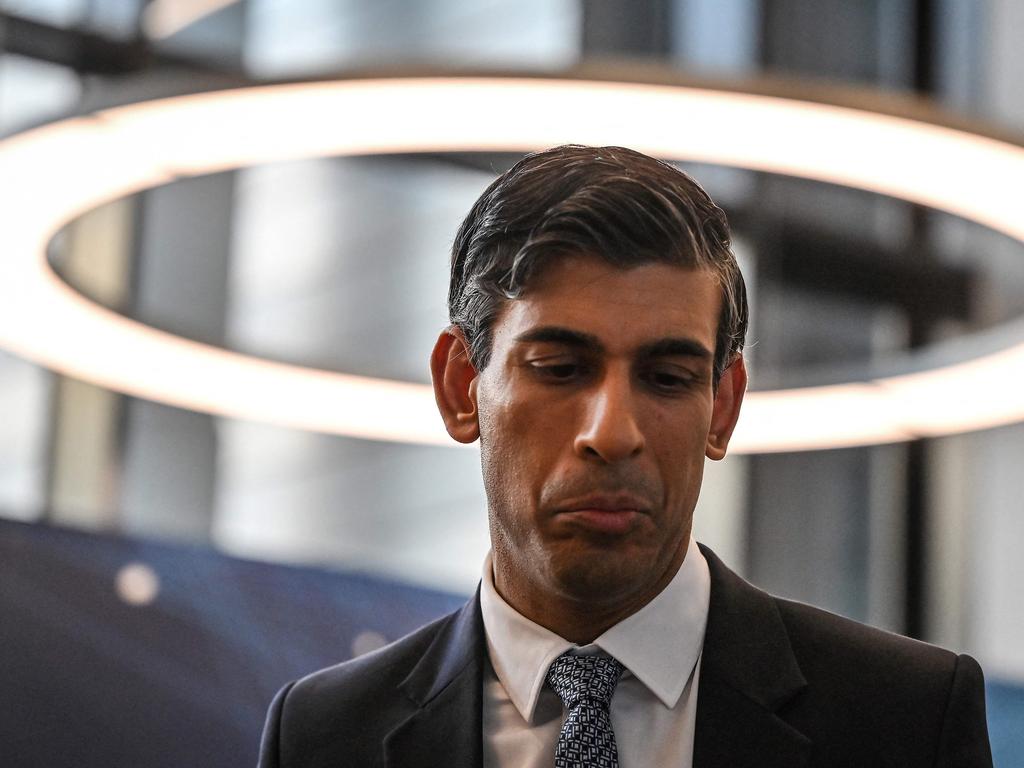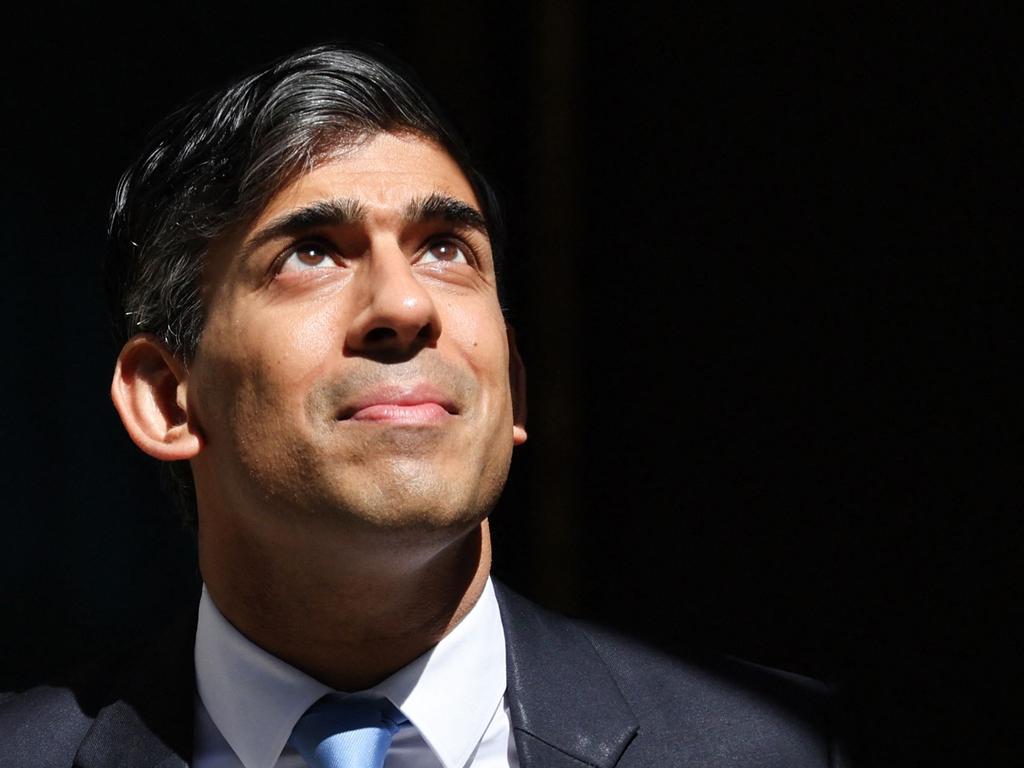From soggy to sunk: How the Conservative election campaign imploded
There have been splits between Downing Street and the Conservative Party, funding problems and a disastrous succession of unforced errors.

The Tory campaign, criticised as one of the worst in history, was riven by divisions and beset with avoidable mistakes from the start.
From the images of a sodden Rishi Sunak outside Downing Street to the prime minister’s abject apology for leaving D-Day commemorations in Normandy early, the Conservatives have spent much of the past six weeks on the back foot and dealing with self-inflicted wounds.
There have been recriminations at Conservative Campaign Headquarters (CCHQ) as splits emerged between Sunak’s Downing Street team and the wider campaign.” ‘Them and us’ has really been a problem,” one senior staff member said.
Those splits began even before the election was officially called. While a group of senior Sunak allies, said to be led by Oliver Dowden, the deputy prime minister, was pushing for a July election, others, including Isaac Levido, the man who would run the campaign, were opposed. Dowden denies pushing for an early election. Most cabinet ministers were kept entirely out of the loop.
The strategy was to catch both Labour and, more importantly, Reform UK on the hop. But despite senior staff at CCHQ knowing of the plans from before May’s local election results, there was a feeling among those close to the prime minister that the party could have been better prepared.
“We did an amazing job at keeping the timing of the election secret, but then we didn’t capitalise on it because CCHQ were not prepared,” one source said. “It would be fair to say that when we got in there a lot of us were quite shocked at the lack of preparation.” A second adviser added: “They knew it was coming but when we arrived in CCHQ it was chaotic. Take candidate selection: how did we go into the election without the party chairman having a seat? That was madness.”
Another highlighted the election launch itself – first, sending Sunak out in the pouring rain to announce the election date, then dispatching him on a nationwide tour that included a trip to the Titanic quarter in Belfast.

The biggest unforced error was yet to come. From the outset there had been discussions about how to accommodate the prime minister’s obligation to attend the D-Day commemorations with other campaign commitments. It was decided that while he would attend the main British event in Normandy, he would duck out of the later international event of world leaders.
One source said “all” of the senior campaign staff had been involved in the decision and no one had argued against it. “It was just a huge mistake,” one senior member of the campaign staff said.
Other problems were less predictable. Tory strategists thought Nigel Farage would largely sit the election out, preferring to concentrate on US politics and his role as a commentator for GB News rather than try for an eighth time to win a Westminster seat.
Initially, this looked like a reasonable assumption. But 10 days later he changed his mind.
“Everything we did in the first few days of the campaign – like national service and the pension triple-lock – was built around squeezing the Reform vote while not giving them too much publicity,” a campaign source said. “And there were small signs it was working. But Farage coming back made that much, much more difficult.”
Others were scathing. “We tried to ignore Reform for far too long,” said a senior party source. “They woke up far too late.”

One senior campaign source admitted that the Tories’ “supermajority” strategy had been born out of desperation.
Levido had hoped that the polls would narrow and allow him to frame the last days of the campaign around the risk of a hung parliament. As it became clear that a Tory wipe-out was more likely than the Liberal Democrats or the Scottish National Party holding the balance of power, a decision was taken to in effect admit that the election was lost.
“Our internal polling wasn’t as bad as some of the public polls, but it wasn’t miles away from it,” a source said. “We basically moved from a campaign to try and pull off an unlikely win to just limit the scale of the defeat.”
Another added: “We know it’s going to be bad. We just hope it’s not going to be disastrous.”
Some problems have been more prosaic. Although the Tories entered the campaign with a significantly larger war chest than Labour, their failure to close the gap in the polls led to donors withholding support.
In the third week of the campaign the Tories reported only £375,000 in donations compared with £3.3m for Labour.
“I think you’ll see when the campaign is over that we will have spent less than Labour,” a campaign source said. “It is fair to say that we have not been able to do as much as we would have liked, particularly in paid media in the last week. We would have wanted to go further but there isn’t the money.”
There has also been a shortage of experienced campaigners in CCHQ and on the ground.

Tory losses in local elections in recent years meant that the “ground operation” in many critical seats was denuded, while at a national level many former Tories now in the private sector decided not to take unpaid leave to help what they knew would be a losing campaign.
“In 2019 we had a lot of really experienced former people come back and help,” a source said. “Not many of them came back this time around.”
A Conservative spokeswoman insisted the campaign had achieved its objectives. “A key objective was to expose Labour’s deceitful intention to raise a wide range of taxes, and that has clearly cut through with voters across the country,” they said.
Some candidates have expressed frustration with the lack of support. “We’ve had zero help from CCHQ. Nothing – no volunteers, no digital,” said one MP who believes they can retain their seat. “My Labour opponent has had 50 people knocking on doors. I’ve even had a Starmer flyer through my letterbox.”

The situation was summed up by an encounter between a voter and a Tory phone canvasser last week in what should be a safe Tory seat.
On a scale of one to 10, the voter was asked, how likely are you to vote Conservative? The voter replied that she couldn’t answer the question because she hadn’t been given an option of zero.
The canvasser apologised but asked the woman not to get cross with her. “I don’t support them either,” she said. “I just get paid to do this.”
The Times



To join the conversation, please log in. Don't have an account? Register
Join the conversation, you are commenting as Logout